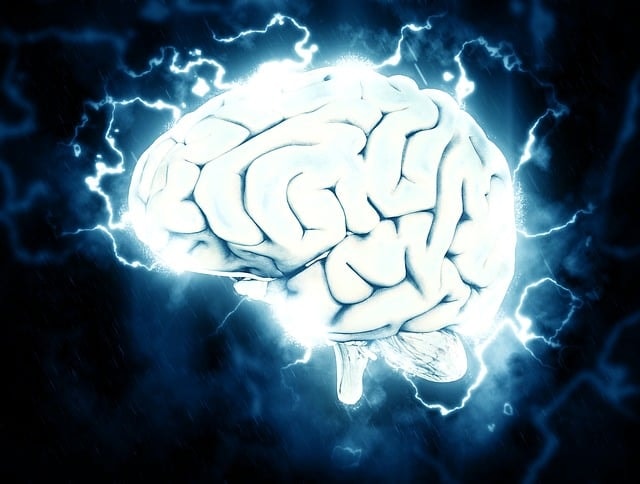Could this silent danger be the cause of your mental haze?
Written by Susan Parker | Updated on May 28, 2025
Reviewed by Susan Parker
Key Takeaways
Neuroinflammation Is the Root Cause: Brain fog is often the result of chronic inflammation.
Symptoms Are Widespread but Overlooked: Trouble focusing, memory issues, fatigue are signs of brain inflammation.
You Can Reverse It Naturally: Anti-inflammatory foods, better sleep, and supplements can help restore mental clarity.
Frequently Asked Questions
Key Takeaways
Neuroinflammation Is the Root Cause: Brain fog is often the result of chronic inflammation.
Symptoms Are Widespread but Overlooked: Trouble focusing, memory issues, fatigue are signs of brain inflammation.
You Can Reverse It Naturally: Anti-inflammatory foods, better sleep, and supplements can help restore mental clarity.
Frequently Asked Questions
As we grow older, certain indications of illness become evident.
Aching joints often point to arthritis... high blood sugar levels can be a sign of diabetes... and elevated cholesterol may indicate heart disease.
However, when it comes to your brain, the early signs of disease may not be as obvious.
While memory loss, agitation, and cognitive problems are noticeable, these symptoms typically manifest AFTER the brain damage has started.
The underlying cause of all diseases, including dementia and memory loss, is inflammation.
This silent condition often goes unnoticed until it's too late to take action.
Fortunately, there is one symptom, known as brain fog, which researchers suggest can indicate inflammation.
Even better? There are simple ways to address it.
Here's all you need to understand about brain fog and inflammation...
Neuroinflammation Is the Root Cause: Brain fog often results from chronic inflammation in the brain, disrupting neural processes and communication.
Symptoms Are Widespread but Overlooked: Difficulty focusing, memory problems, fatigue, and emotional flatness are signs of potential brain inflammation.
You Can Reverse It Naturally: Incorporating anti-inflammatory foods, improving sleep quality, managing stress, and using specific supplements can help restore mental clarity and reduce inflammation.
Brain fog or mental fog feels exactly as it sounds -- your mind is enveloped in a fog. Your thinking becomes hazy... your reactions slow down... and finding the right words becomes challenging.
We all encounter brain fog occasionally due to stress, lack of sleep, or illness. However, if it persists for extended periods, it could indicate high levels of brain inflammation.
According to the Cleveland Clinic, symptoms of brain fog include:
Memory Problems: Difficulty recalling names, dates, or recent events. Misplacing items or losing your train of thought mid-sentence could occur.
Poor Concentration: Struggling to focus on tasks, conversations, or reading. Feeling mentally scattered or unfocused.
Mental Fatigue: Extreme tiredness or sluggishness affecting information processing and clear thinking.
Confusion: Experiencing mental disorientation, indecisiveness, or feeling overwhelmed by simple tasks.
Slow Reaction Time: Delayed responses in conversations, problem-solving, or daily activities, along with sensory information processing issues.
Lack of Mental Clarity: Feeling like thoughts are unclear or disorganized, making it challenging to articulate or structure ideas.
Difficulty Multitasking: Struggling to handle multiple tasks simultaneously or switch focus between activities efficiently.
Low Motivation or Mood Swings: Depression, anxiety, lack of motivation, irritability, or emotional flatness due to mental exhaustion from brain fog.
If you experience these symptoms, you might be facing brain inflammation.
However, this doesn't mean your symptoms have to worsen.
There are ways to combat inflammation (details to follow shortly).
First, let's delve into the primary mechanisms and causes of brain inflammation.

We are aware that the immune system significantly influences overall health by combating viruses, bacterial infections, and maintaining hormonal balance.
Yet, when the immune system is overactive, such as during a viral infection, chronic illness, or autoimmune disorder, it releases cytokines. These immune cells trigger inflammation throughout the body but pose a particular threat to the brain as they can breach the blood-brain barrier, slowing neural processing speed and memory formation.
Cytokines are especially harmful once they penetrate the blood-brain barrier as they escalate brain inflammation, leading to three adverse effects in the brain, including:
Interfering with the neuroinflammatory response and disrupting brain cell communication,
Reducing levels of brain chemicals like serotonin and dopamine that impact mood and motivation,
Increasing brain tissue swelling.
Other factors contributing to brain inflammation involve the activation of glial cells and astrocytes, the brain's immune cells. When these cells become hyperactive, chronic inflammation can occur.
Brain inflammation also inhibits neuro and dendritic sprouting, crucial mechanisms for brain repair and growth.

Various persistent conditions are associated with increased inflammation. These include aging, fluctuations in blood sugar, immune system disorders, mild cognitive impairment, central nervous system disorders, food sensitivities, hormonal changes, sleep disturbances, multiple sclerosis, compromised blood vessels, and brain trauma—such as from a stroke.
Specific diseases like Hashimoto's low thyroid, postural orthostatic tachycardia syndrome, anemia, diabetes, depression, anxiety, attention deficit hyperactivity disorder, and autoimmune conditions can lead to confusion and cloudy cognition.
Studies reveal that individuals with chronic fatigue syndrome and fibromyalgia (a chronic pain condition) are at higher risk of experiencing brain fog.
Research also indicates that celiac disease can induce leaky gut, a condition linked to inflammation types that can result in brain fog.
Long COVID 19 has shed light on post-viral brain fog, but it's not the sole viral instigator. Viruses such as Epstein-Barr, Lyme disease, and severe flu can heighten brain inflammation.
Nutrition significantly influences brain inflammation levels and brain fog outcomes.
Evidence shows that vitamin B-12 deficiencies are connected to brain inflammation. This nutrient is crucial in reducing neuroinflammation as it aids in neutralizing free radicals and homocysteine, two primary instigators of the condition. Additionally, vitamin B-12 helps regulate specific genetic functions that can elevate neuroinflammation.2
A comprehensive analysis involving 16 randomized trials with 6276 participants in 2021 revealed that a deficiency in vitamin B-12 can heighten the risk of cognitive impairment and brain fog.3
Food allergies, including peanuts, dairy, gluten, and artificial sweeteners, can activate the immune system, escalate inflammation, and trigger brain fog.4
Moreover, incorporating more omega-3 fatty acids in a balanced diet can help alleviate inflammation, reducing the likelihood of brain fog and enhancing brain function.

Research demonstrates that chronic stress can heighten cytokine levels in the brain and body. Stress also contributes to other conditions associated with increased inflammation, including heart disease, blood sugar imbalances, accelerated aging, depression, and anxiety.
Quality sleep aids in eliminating toxins from your brain and reducing inflammation. However, inadequate or poor-quality sleep can lead to the accumulation of toxins that impede neuronal function and induce inflammation.
Studies indicate that insufficient sleep can diminish blood flow and function in the brain, resulting in mild cognitive impairment and brain fog.6
Modern lifestyles pose unique challenges to brain function and can trigger brain fog. Key environmental factors include:
Exposure to electronic devices that can disrupt sleep patterns and cognitive processing
Accumulation of environmental toxins in neural tissue impacting the central nervous system
Poor air quality linked to reduced cognitive performance
If you suspect brain inflammation, it's advisable to consult your physician about your concerns.
There are various methods to assess brain inflammation, including:
Clinical evaluation of cognitive symptoms
Blood tests to check inflammatory markers
Analysis of cerebrospinal fluid
Neuroimaging techniques (e.g., MRI to evaluate blood-brain barrier integrity)
Addressing underlying health conditions is a fundamental step in reducing neuroinflammation. Collaborating with your doctor to manage conditions like diabetes, heart disease, anxiety, depression, thyroid disorders, and chronic pain can lead to decreased inflammation levels.
Anti-inflammatory strategies offer another approach to combat the condition. These include:
Adopting a healthy diet rich in fruits, vegetables, B-12 sources like nuts and eggs, and omega-3 fatty acids to reduce brain inflammation.
Including antioxidant-rich foods like berries, leafy greens, coffee, and dark chocolate to alleviate oxidative stress and inflammation.
Avoiding inflammatory foods such as gluten and dairy to diminish brain inflammation.
Integrating specific supplements.
Exercise enhances blood flow throughout the body, including the brain. This increased blood flow delivers necessary nutrients and oxygen essential for reducing inflammation in the brain.
A study reveals that exercise can elevate the production of brain-derived neurotrophic factor (BDNF), special proteins in neurons that enhance brain function and combat anxiety and depression.5
Reducing stress through practices like meditation and yoga can alleviate brain inflammation and enhance cognitive function.
Stress management techniques such as deep breathing and progressive muscle relaxation can help reduce stress and induce relaxation.
Practicing mindfulness meditation and yoga can reduce stress and promote relaxation.
Regular massages and self-care practices can lower stress levels and foster relaxation.
Taking breaks and engaging in enjoyable activities can reduce stress and promote relaxation.
Enhancing sleep quality and duration can combat brain fog and enhance cognitive function.
Regular exercise, particularly aerobic activities, can reduce inflammation and boost brain function.
Reducing stress through strategies like meditation and yoga can alleviate brain inflammation and enhance cognitive function.
Enhancing cognitive function through mental exercises and cognitive stimulation can help reduce brain fog.
Omega-3 fatty acids, especially EPA and DHA, can reduce inflammation and support brain health.
Vitamin D, magnesium, and zinc can diminish inflammation and boost brain function.
Antioxidants like CoQ10 and N-acetyl cysteine can reduce oxidative stress and inflammation.
Lion's Mane, Ginkgo biloba, and Bacopa monnieri can enhance cognitive function and reduce brain fog.
Managing inflammation can enhance clarity of thought and reduce memory issues, regardless of the supplements you opt for.
Consulting your doctor about brain fog is crucial for assessing brain inflammation and determining how to address any underlying conditions that may heighten neuroinflammation.
Adopting lifestyle adjustments like a low-inflammation diet, stress management, addressing nutritional deficiencies, and sleep hygiene are effective methods to combat inflammation.
Brain fog is not just a bothersome consequence of a hectic life—it often indicates early neuroinflammation, the hidden trigger behind cognitive decline and neurodegenerative disorders. Chronic inflammation in the brain disturbs neural communication, influences mood and memory, and can result from various factors ranging from poor sleep to vitamin deficiencies. Fortunately, scientific evidence suggests that this fog can be lifted. Lifestyle modifications such as a low-inflammatory diet, targeted supplements, regular exercise, stress alleviation, and quality sleep can all aid in reversing brain inflammation and restoring clarity.
While numerous factors contribute to brain fog, research points to inflammation, particularly neuroinflammation, as the primary driver.
Omega-3 fatty acids, particularly EPA and DHA, can reduce inflammation and support brain health.
Vitamin D, magnesium, and zinc can diminish inflammation and promote brain function.
Antioxidants, such as CoQ10 and N-acetyl cysteine, can lower oxidative stress and inflammation.
Lion's Mane, Ginkgo biloba, and Bacopa monnieri can enhance cognitive function and reduce brain fog.
Factors contributing to brain inflammation include underlying conditions, stress, poor sleep, inflammatory diet, vitamin deficiencies, and environmental influences.
Yes! Implementing lifestyle changes like stress management, consumption of whole foods, adequate sleep, increased physical activity, and specific supplements can help reverse brain fog.